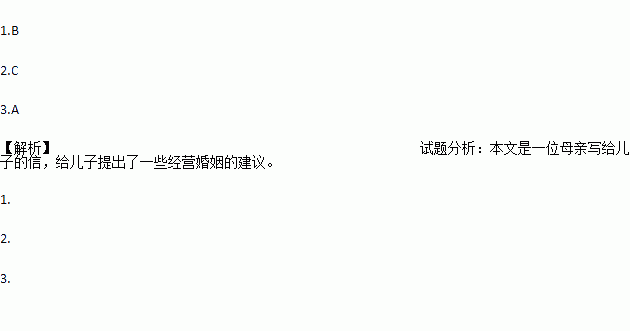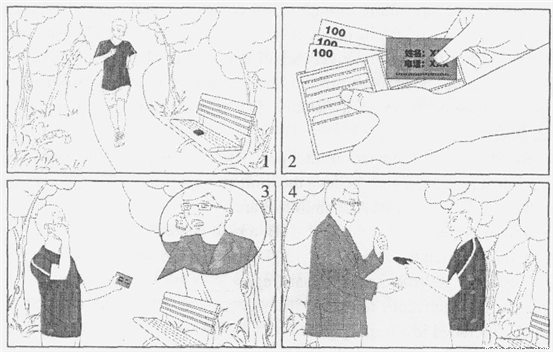题目内容
To my Charley on his wedding day:
I know you think these notes are silly. I have watched you wear a long face over the years when I give them to you. But understand that sometimes I want to tell you something and I want to get it just right. Putting it down on paper helps me do that. I wish I had been a better writer, I wish I had gone to college. If I had, I think I would have studied English and maybe my vocabulary would have improved. So many times I feel I am using the same words over and over. Like a woman wearing the same dress every day. So boring!
What I want to say to you, Charley, is you are marrying a wonderful girl. I think of Catherine in many ways like I think of Roberta. Like a daughter. She is sweet and patient. You should be the same with her, Charley.
Here is what you are going to find out about marriage: you have to work at it together* And have to love three things. You have to love
1) Each other.
2) Your children (when you have some).
3) Your marriage.
What I mean by that last one is, there may be times that you fight, and sometimes you Catherine won’t even like each other. But those are the times you have to love your marriage like a third party. Look at your wedding photos. Look at any memories you’ve made. And if believe in those memories, they will pull you back together.
I’m very proud of you today, Charley. I am putting this in your tuxedo pocket because I know how you lose things.
I love you every day!
Mom
1.Why did the mother write the letter to Charley?
A. To congratulate her son. B. To give him some advice.
C. To show her pity. D. To talk things through.
2.What kind of feeling is mainly revealed in the letter?
A. Regret. B. Pride.
C. Care. D. Complaint.
3.What is implied about Charley in the letter?
A. He is forgetful. B. He is patient.
C. He is boring. D. He is worried.


